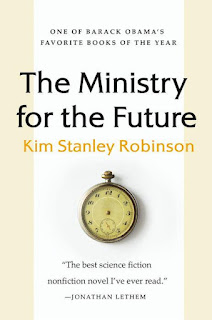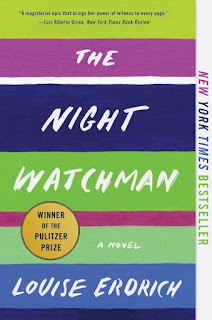It's surely admirable that Dave Eggers isn't allowing his new novel to be sold on "the jungle," as he winkingly refers to Amazon in
The Every. But unfortunately, the novel itself isn't nearly as good as his intentions. The Every is a sequel to Eggers' 2013 novel,
The Circle —it actually feels like the second in a trilogy and has some serious Empire Strikes Back vibes. Here, the bad guys in the form of the evil tech company are winning.
It's a few years in the future from the events of The Circle, and Eggers' Circle protagonist, Mae Holland, is now the CEO of the Every, which is a combination of the Circle and the newly acquired jungle. Our protagonist is a young woman from Idaho named Delaney, who together with her friend Wes, get jobs at The Every. But ever since Delaney recovered from a nasty screen addiction as a little girl, and "the jungle" destroyed her parents' grocery store, she's been hellbent on revenge against the evil tech company.
Her plan is to destroy The Every from the inside out by introducing ridiculous idea after ridiculous idea until the public finally pushes back against the all-powerful tech company. Never mind that this premise, even for a satire, is patently silly, but my real beef is that the novel sort of just devolves into descriptions of these apps, and what happens when they're released into the wild. It just reads like a litany of bad ideas. For instance, Friendy is an app that allow you to gauge how good your friends really are by judging if they're being truthful to you in conversations, how much interaction you have with them, how emotionally fulfilling that interaction is, etc. Or OwnSelf, that tells you exactly when and for how long you should exercise, drink water, call you children, laugh, send out The Every's version of social media likes, and many more — basically controlling your entire life. And there are many, many more examples like this.
Though it is a bit clumsy in its execution, and therefore doesn't quite work as satire, The Every is still an effective cautionary tale. Eggers hits on many of the same issues as in The Circle about the dangers of screen addiction, voluntarily relinquishing privacy, and choice. Of course, we all know that "slippery slope" is a logical fallacy. But slippery slope is also fertile ground for good satire. And though this isn't exactly good satire, the points are still well made. One of the main dangers introduced here is what happens when humans get lazy enough that they actually don't want choice. They want to be told want to do, have their lives planned out. The Every jumps on this notion and tries to pick the winners and losers. "Limitless choice is killing the world," one characters tells another.
The Every is also a novel about the dangers of group-think. Remember during 2016 how we just kept thinking the next horrific thing that presidential candidate said or did would be the one that finally caused his cult-like supporters to wise up and turn on him...but it never happened? That's what this novel is about too: Nothing is a bridge too far when it comes to group-think.
On the plus side, I'll say this: Eggers is still very cool. There are several set pieces in this novel that had me howling — as on example, Delaney has to plan a "field trip" as a sort of welcome exercise. People keep asking the same questions over and over again, and are worried about the most ridiculous things. And then they all try to one-up each other in their outrage. It kind of reminded me of a neighborhood message board.
But these moments are too few, and The Every never really gains its footing like The Circle did, which felt clever and urgent. Often, The Every feels just ridiculous and too over-the-top. And it's also waaay too long. Eggers even makes a joke about how all novels should be fewer than 500 pages, and the absolutely limit of a reader's attention is 577, which is the exact folio count of The Every. But I'd humbly suggest The Every probably 177 pages too long.
So even though I didn't think this was as successful as its predecessor, I'm hopeful for a satisfying Return-of-the-Jedi-esque conclusion to this trilogy. Eggers is still one of my favorites and I'll still read anything he writes. His heart is usually in the right place. And he usually and consistently makes me laugh, even if sometimes it's because it's ridiculous.





